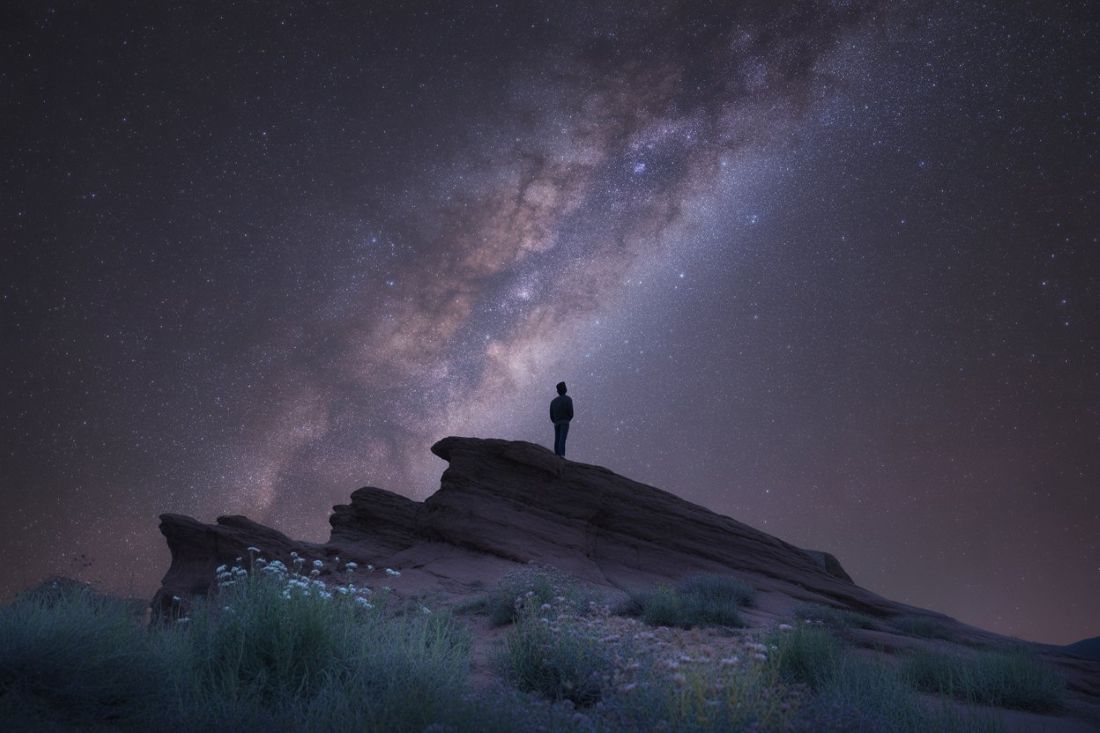Published on
October 16, 2025
Soria, Spain, will be the venue for the much-anticipated VIII Encuentro Anual Starlight de Astroturismo (8th Annual Starlight Meeting on Astrotourism) from October 22–24, 2025. Organised by the Starlight Foundation, this conference will bring together professionals, scientists, and enthusiasts to explore the exciting world of astrotourism. This year’s event promises to provide invaluable insights into how this growing sector is shaping sustainable tourism and the global stargazing movement. Key sponsors such as Starlight Foundation, Soria’s Tourism Department, and Astroeduca will play an integral role in supporting the event’s success.
Astrotourism, which allows visitors to explore the beauty of the night sky while preserving the natural environment, is rapidly gaining popularity. The conference aims to highlight the importance of preserving dark skies, and it will offer unique opportunities to explore how stargazing can be integrated into sustainable tourism efforts. Participants can expect to hear from experts, engage in hands-on workshops, and gain insights into the future of tourism that combines both adventure and conservation.
What is Astrotourism
Astrotourism is a form of sustainable tourism that revolves around the observation of celestial events, stars, and planets. Unlike traditional forms of tourism that rely on day trips and city visits, astrotourism encourages visitors to embrace the serenity of rural and remote locations, away from the artificial lights of urban centres. This allows tourists to connect with nature in a unique way, experiencing the vast beauty of the night sky. As light pollution continues to rise in cities, astrotourism offers a peaceful retreat for travellers seeking both adventure and environmental responsibility.
The Growing Interest in Astrotourism
The Starlight Foundation has been a pioneer in promoting dark sky protection, and the annual conference serves as a vital platform for discussing new opportunities in this niche market. As a result, the Starlight Certification has become a prestigious hallmark for destinations offering superior stargazing experiences. These locations provide essential elements for astrotourism, such as Starlight-certified observatories, dedicated guides, and clear, unpolluted skies. In addition to local governments, the event is supported by Starlight Monitors, certified experts who ensure that dark sky standards are upheld and continuously improved.
During the 2025 conference, experts will delve into a wide range of topics, from the scientific benefits of stargazing to practical considerations for turning starlit destinations into thriving tourism hubs. The conference will include a series of discussions on astrotourism’s impact on local economies, and how the sector can foster job creation in rural areas while offering a deeper connection with nature.
Key Topics to be Discussed
At the VIII Encuentro Anual Starlight de Astroturismo, several key themes will take centre stage:
The Environmental and Economic Benefits of Astrotourism:
Experts will discuss how preserving dark skies is not only good for the environment but also boosts local economies by attracting tourists interested in unique stargazing experiences. This growing demand for astrotourism will create new job opportunities in rural regions, especially for local guides and community-driven observatories.Education and Training for the Next Generation of Astrotourism Professionals:
A major focus will be on the education and training necessary to build a new generation of astrotourism guides and astronomy experts. The conference will offer practical workshops where attendees can gain certification and hands-on experience, learning about celestial navigation, telescope handling, and star mapping.Technological Advancements in Stargazing:
The latest technologies will also be explored, particularly how digital platforms and mobile apps are helping travellers connect with dark sky parks and astrotourism sites. Apps that track celestial events and help stargazers identify constellations will play a crucial role in promoting this form of tourism.The Role of Astrotourism in Sustainable Development:
Panel discussions will explore how integrating sustainable practices into astrotourism can help mitigate light pollution and preserve the natural environment. By supporting low-impact tourism and promoting eco-friendly accommodations like solar-powered resorts, astrotourism offers a promising future for responsible travellers.Astrotourism and Local Communities
Astrotourism not only gives tourists an exceptional experience but also brings tangible benefits to local communities. As more destinations achieve Starlight Certification, these places are attracting not just curious travellers, but also environmentalists, scientists, and photographers keen to capture the breathtaking night skies.
Local tourism boards, such as those from Soria and Asturias, are already seeing the positive impact of stargazing tourism on their regions. The Starlight Reserve designation, which acknowledges areas with exceptional conditions for stargazing, has become an integral part of many local tourism strategies. In Soria, the conference will showcase how the town is transitioning into a Starlight-certified province, offering tourists world-class facilities for a memorable celestial experience.
What Tourists Can Expect from the 2025 Conference
For tourists and travellers attending the conference, it is an opportunity to experience astrotourism firsthand. The event will host a star party where attendees can gaze at the night sky through telescopes while learning about constellations and celestial events. The organisers aim to encourage the tourism community to embrace dark-sky tourism and open new paths for sustainable, eco-friendly travel experiences.
At the same time, attendees will get a chance to interact with local guides and learn about the rich cultural heritage of stargazing. Spain, with its clear skies and picturesque landscapes, offers a perfect backdrop for astrotourism.
Astrotourism’s Bright Future
As the VIII Encuentro Anual Starlight de Astroturismo approaches, it is clear that astrotourism holds great promise for the future of sustainable tourism. The growing interest in this sector offers new opportunities for both travellers and local communities to engage in meaningful and environmentally-conscious travel experiences.
In the future, places with dark sky parks, observatories, and stargazing tours will become even more popular. Starlight Foundation and its partners are increasingly working toward that future. It preserves the beauty of the dark night sky while giving tourists access to the impossible views of the universe.
